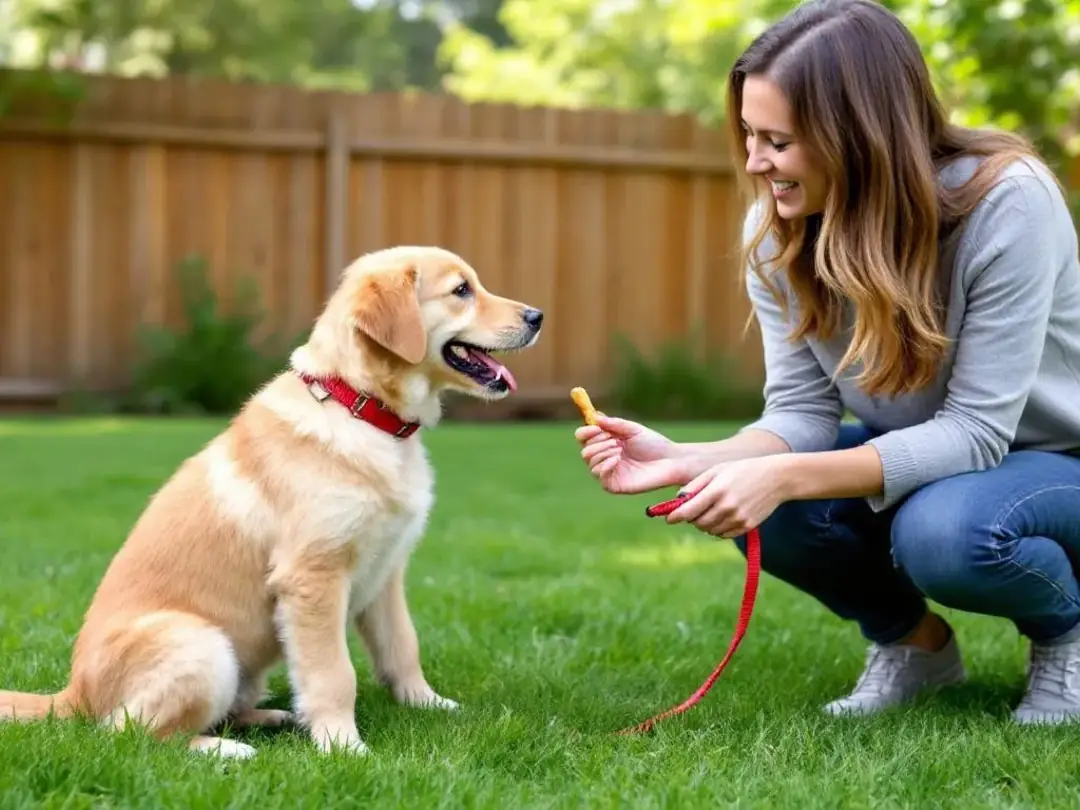Key Takeaways
-
Goldendoodles are hybrid dogs created by crossing golden retrievers and poodles, first bred in 1989 for service work
-
They come in four sizes (petite, mini, medium, standard) with low-shedding coats that may be suitable for allergy sufferers
-
These intelligent, friendly dogs require 30-60 minutes of daily exercise and regular grooming every 4-8 weeks
-
Goldendoodles live 10-15 years and are prone to specific health issues including hip dysplasia, heart disease, and eye problems
-
They excel as family pets and service dogs but can develop separation anxiety without proper socialization and training
Goldendoodle Origins and Breed Background
The modern goldendoodle story begins in 1989 when Wally Conron of the Royal Guide Dog Association of Australia bred the first intentional golden retriever and poodle cross. His goal? Create a guide dog suitable for people with dog allergies-combining the golden retriever's gentle, trainable nature with the poodle's intelligence and low-shedding coat.
This designer breed gained serious momentum in the United States during the 1990s as families discovered these wonderful pets offered the best of both parent breeds. While an earlier golden retriever-poodle cross existed in 1969, it didn't achieve widespread recognition like today's goldendoodles.
Most goldendoodles you'll encounter are F1 generation dogs-a direct cross between a purebred golden retriever and a standard poodle. Breeding two goldendoodles together is relatively uncommon, but when it does occur, the resulting puppies are known as F2 generation goldendoodles. This hybrid breed represents decades of intentional breeding to create smart dogs that work well as both family companions and service dogs.
The american kennel club doesn't recognize goldendoodles as an official breed since they're considered a mixed breed rather than a pure bloodline. However, their popularity continues to soar among active families seeking energetic dogs with manageable grooming needs.


Size Variations and Physical Characteristics
Understanding goldendoodle sizes helps you choose the right fit for your living situation. These dogs come in four distinct categories that depend largely on whether standard poodles or miniature poodles were used in breeding.
Standard goldendoodles measure 20-24 inches tall and weigh 50-90 pounds. They're bred from standard poodle parents and golden retrievers, making them ideal for families wanting a larger companion. Medium goldendoodles fall in the 35-50 pound range, offering a nice middle ground for most households.
Mini goldendoodles weigh 25-35 pounds and come from crossing golden retrievers with miniature poodle parents. These dogs work well for apartment living while maintaining the breed's characteristic energy. Petite goldendoodles stay under 25 pounds, though they're less common than other sizes.
Coat types vary significantly even within the same litter. Straight coats shed more like the golden retriever parent, while wavy coats offer a compromise between shedding and maintenance. Curly coats, inherited from the poodle parent, shed the least but require the most grooming attention.
Color options include the classic golden and cream shades, plus apricot, red, chocolate, dark brown, black, gray, and parti-colored combinations. Rare blue goldendoodles exist but require years of selective breeding to achieve.
Temperament and Personality Traits
Goldendoodle temperament is characterized by friendly, intelligent personalities that make them excellent family pets. They inherit the golden retriever's eager-to-please attitude combined with the poodle's intelligence, creating smart dogs that respond well to proper training.
These dogs form strong bonds with their human family and generally get along well with children, other dogs, and other pets when properly socialized. Their playful nature means they enjoy interactive games, but they're not typically aggressive or overly protective. The temperament of each individual dog can vary based on genetics and upbringing, so it's important to consider the unique personality of your pet.
However, goldendoodles tend to develop separation anxiety due to their strong attachment to humans. They thrive on human interaction and may exhibit destructive behavior when left alone for extended periods. This makes them better suited for families where someone is home regularly or can provide adequate mental stimulation.
Most goldendoodles are naturally quiet but will bark to alert their family of visitors. Don't expect them to work as effective guard dogs-their overly friendly nature means they're more likely to greet intruders with tail wags than suspicion.
Both the golden retriever and poodle parents contribute to this breed's high energy levels. Without adequate exercise and training sessions, many goldendoodles become restless and may develop unwanted behaviors like excessive barking or chewing.


Health Considerations and Lifespan
Goldendoodles live an average of 10-15 years, often enjoying longer lifespans than their purebred parents due to hybrid vigor. However, they can inherit health problems from both poodles and golden retrievers, making health testing crucial when selecting reputable breeders.
Hip dysplasia affects joint development and mobility, particularly in standard goldendoodles. This condition causes pain and reduced movement as dogs age. Reputable breeders test both parent breeds for hip dysplasia before breeding.
Subvalvular aortic stenosis (SAS) is a heart condition that affects blood flow through the heart valve. It's inherited from both poodles and golden retrievers, requiring cardiac screening of breeding dogs.
Eye problems include glaucoma, cataracts, and progressive retinal atrophy. These conditions can lead to vision impairment or blindness, making eye testing another essential component of responsible breeding programs.
Gastric dilatation-volvulus (GDV), also called bloat, poses a serious risk for larger goldendoodles. This emergency condition requires immediate veterinary care and can be prevented by feeding smaller, frequent meals and avoiding exercise around mealtime.
Other health considerations include ear infections due to their floppy ears, skin allergies, and elbow dysplasia. Generally healthy dogs when bred responsibly, goldendoodles benefit from regular veterinary checkups and preventive care.
Exercise and Activity Requirements
Goldendoodles love regular exercise and need 30-60 minutes of daily physical activity to stay happy and healthy. These energetic dogs inherited the retrieving instincts from their golden retriever parent and the athletic ability from both parent breeds.
Standard and medium goldendoodles require more vigorous exercise than miniature goldendoodles, but all sizes benefit from a mix of physical activity and mental stimulation. Two shorter exercise sessions work better than one long workout, protecting developing joints in younger dogs.
These natural water dogs excel at swimming, making it an excellent low-impact exercise option. They also enjoy fetch, hiking, and dog sports like agility training. A fenced yard provides great space for play, but it's not mandatory if you can provide adequate daily walks and activities.
Mental stimulation prevents boredom and destructive behavior in these smart dogs. Puzzle toys, training sessions, and interactive games help tire their minds as much as their bodies. Without proper mental and physical outlets, goldendoodles may develop separation anxiety or engage in unwanted behaviors.
Many goldendoodles adapt well to apartment living when their exercise requirements are met consistently. The key is providing variety-different routes for walks, new environments to explore, and regular opportunities for off-leash play in safe areas.
Fun Activities for Goldendoodles
Goldendoodles are energetic dogs that thrive on regular exercise and mental stimulation, making them perfect companions for active families. Their playful nature and intelligence mean they're always up for a new adventure, whether it's a brisk walk around the neighborhood, a run in the park, or a challenging hike on the trails. Many goldendoodles love to play fetch, splash around in the water, or join their human family for a swim-activities that tap into their golden retriever heritage as natural water dogs.
For those looking to take things up a notch, goldendoodles excel in dog sports such as agility, obedience, and even dock diving. These activities not only provide physical exercise but also keep their sharp minds engaged. Regular training sessions and interactive games help prevent boredom and channel their energy in positive ways. Goldendoodles also enjoy socializing with other dogs at the dog park or during playdates, which supports their need for human interaction and helps them develop good manners.
With proper training, goldendoodles can master a variety of activities, making them a versatile breed for families who love to stay active. Whether you're exploring the outdoors or participating in organized dog sports, your goldendoodle will be a willing and enthusiastic partner, always ready for the next adventure.


Training and Socialization Needs
The poodle's intelligence, specifically the poodle's intelligence, combined with the golden retriever's eagerness to please makes goldendoodles highly trainable using positive reinforcement methods. These smart dogs respond well to reward good behavior approaches rather than harsh methods. Understanding animal behavior is essential for effective training and socialization, as it helps owners tailor their approach to each dog's unique temperament and needs.
Early socialization is crucial for developing confident, well-adjusted adult dogs. Expose your goldendoodle puppy to various people, animals, sounds, and environments during their critical socialization period. This helps prevent fearfulness and anxiety later in life.
Crate training provides a safe space and helps manage separation anxiety while supporting potty training efforts. Make the crate comfortable with soft bedding and engaging toys, never using it as punishment.
Potty training typically progresses faster than with golden retrievers alone, thanks to the poodle parent's intelligence. Consistency and positive reinforcement accelerate the process, though individual dogs may vary in their learning speed.
Training sessions should be short and engaging to match their attention spans. Focus on basic commands like sit, stay, come, and down before progressing to more complex behaviors. Many goldendoodles excel in obedience training and dog sports due to their athletic ability and eagerness to learn.
Fear periods occur predictably-first at 7-11 weeks, then again at 6-14 months depending on the dog's size. During these times, avoid overwhelming experiences and focus on building confidence through positive interactions.
Coat Maintenance notes that Goldendoodles Shed and so Grooming is Important
Regular grooming keeps goldendoodles healthy and comfortable while managing their unique coat characteristics. Professional grooming every 4-8 weeks prevents matting and maintains coat health, though grooming needs vary by coat type.
Daily brushing works best for curly coats inherited from the poodle parent, while wavy coats need attention every few days. Straight coats require less frequent brushing but may shed more than other coat types. A quality slicker brush and metal comb handle most daily maintenance.
While many goldendoodles shed less than other dog breeds, they're not completely allergy friendly. Dander, which consists of dead skin cells, is a primary cause of dog allergies. Regular grooming can help reduce the shedding of dead skin cells and minimize allergic reactions caused by pet dander. The level of shedding depends on which parent breed's coat genetics dominate. F1B goldendoodles (75% poodle) typically shed less than F1 crosses.
Ear infections pose a common concern due to their floppy ears and hair growth in the ear canal. Regular ear cleaning and keeping ears dry after baths or swimming help prevent bacterial and yeast infections. Check ears weekly for odor, redness, or excessive wax buildup.
Bathing frequency depends on lifestyle and coat type, but most goldendoodles need baths every 4-6 weeks or when they become dirty or smelly. Use dog-specific shampoo to protect their skin and coat. After bathing, dry thoroughly to prevent skin issues.
Eye area trimming prevents vision obstruction and reduces tear staining. Many owners learn to do basic maintenance trimming between professional grooming appointments.
Feeding and Nutrition Guidelines
Proper nutrition supports your goldendoodle's health throughout their life stages. Choose AAFCO-compliant dog food from reputable brands like Purina Pro Plan, Hill's Science Diet, or Royal Canin that meet their nutritional needs.
Adult dogs thrive on two measured meals daily, while goldendoodle puppies need 3-4 smaller meals to support their rapid growth and development. Measure portions with a scoop rather than guessing to maintain consistent nutrition and prevent overfeeding.
To prevent gastric dilatation-volvulus (GDV) in larger goldendoodles, avoid exercise 1-2 hours before and after meals. Use slow feeders or puzzle toys to reduce eating speed and make mealtime more engaging.
Fresh water should always be available, and any food changes should happen gradually over 5-7 days to prevent digestive upset. Monitor your dog's body condition regularly-you should feel their ribs easily without excess fat covering.
Treats shouldn't exceed 10% of your dog's daily calorie intake. Use high-value treats during training sessions, but remember that too many treats can lead to weight gain and nutritional imbalances.
Consult your veterinarian for appropriate food amounts based on your dog's age, size, activity level, and individual metabolism. Growing puppies and highly active adult dogs need more calories than sedentary seniors.
Lifestyle Compatibility: Is a Goldendoodle Right for You?
Choosing a goldendoodle means welcoming a hybrid breed that combines the golden retriever's friendly, outgoing personality with the poodle's intelligence and low-shedding coat. While goldendoodles are generally healthy and easy to train, they do require regular exercise, consistent grooming, and ongoing training to thrive. This commitment can be time-consuming and may not suit every household.
If you're an active family or an individual who enjoys spending time outdoors and engaging with your dog, a goldendoodle can be a wonderful pet. Their adaptable nature and eagerness to please make them a great choice for first-time dog owners, especially those willing to invest in their dog's care and development. For those with limited space or a busier lifestyle, a mini goldendoodle may be a better fit than standard goldendoodles, as they require less room to roam and slightly less exercise.
Ultimately, goldendoodles are best suited for families who can provide regular exercise, mental stimulation, and plenty of human interaction. If you're looking for a generally healthy, intelligent, and affectionate breed that fits well into an active lifestyle, the goldendoodle could be the perfect addition to your home.
Cost of Owning a Goldendoodle Designer Breed
Owning a goldendoodle is a rewarding experience, but it's important to be prepared for the financial commitment involved. The initial cost of a goldendoodle puppy from a reputable breeder typically ranges from $1,500 to $5,000, depending on factors like size, lineage, and breeder reputation. Beyond the purchase price, regular grooming is essential for this breed, with professional sessions costing between $50 and $100 each-an expense that adds up over time.
Routine expenses also include high-quality food, toys, training classes, and regular veterinary care. Goldendoodles are prone to certain health issues, such as hip dysplasia and ear infections, which can lead to additional vet bills. Preventive care, including regular grooming and health checkups, helps manage these risks and supports your dog's long-term well-being.
While the costs can be significant, many goldendoodle owners find the investment worthwhile for the companionship, joy, and love these dogs bring to their families. With proper care and attention, your goldendoodle can enjoy a long, healthy life as a cherished member of your household.


Finding Reputable Breeders and Adoption Options for Your Own Goldendoodle Puppy
The Goldendoodle Association of North America (GANA) provides a breeder directory featuring certified members who follow strict ethical standards and health testing requirements. GANA breeders test parent breeds for hip dysplasia, elbow dysplasia, heart conditions, and eye problems before breeding.
Good Dog marketplace connects prospective owners with ethical breeders and rescue organizations nationwide. Their screening process helps identify responsible breeders who prioritize health testing over profit margins.
IDOG Rescue specializes in goldendoodle and labradoodle rehoming, offering an alternative to purchasing goldendoodle puppies. Many wonderful pets end up in rescue through no fault of their own, and adult dogs often come with basic training already completed.
Expect to pay $1,500-$5,000 for a goldendoodle puppy from reputable breeders, with prices varying based on breeder reputation, location, and lineage. While goldendoodles expensive upfront, responsible breeding practices help ensure healthier dogs with fewer long-term health issues.
Budget for ongoing expenses including veterinary care, professional grooming, high-quality food, and training classes. These costs add up over your dog's 10-15 year lifespan, so factor them into your decision-making process.
Avoid puppy mills and backyard breeders who skip health testing and prioritize profit over animal welfare. Ask to see health clearances for both poodle parents and golden retriever parents, and expect to visit the breeding facility before committing.
What to Know About Goldendoodles in Terms of their Roles as Both Service and Therapy Dogs
Goldendoodles excel as service dogs due to their intelligence, trainability, and calm temperament inherited from both parent breeds. They work successfully as guide dogs, medical alert dogs, PTSD support animals, and mobility assistance dogs.
Their size versatility makes them suitable for various service roles-standard goldendoodles provide stability for mobility assistance, while miniature goldendoodles work well for alert-based tasks. The breed's natural eagerness to please and strong bond with humans supports the intensive training required for service work.
Many goldendoodles serve as therapy dogs in hospitals, nursing homes, schools, and counseling centers. Their friendly demeanor and low-shedding coats make them welcome in healthcare environments where traditional breeds might not be suitable.
The golden retriever background provides natural retrieving instincts useful for mobility assistance tasks, while the poodle's intelligence enables complex problem-solving required in service work. This combination creates dogs capable of learning extensive command repertoires.
Search and rescue work represents another area where goldendoodles demonstrate their versatility. Their athletic ability, intelligence, and strong human bonds make them effective in wilderness and disaster response situations.
However, not every goldendoodle has the temperament for service or therapy work. Proper evaluation and specialized training from qualified organizations ensure success in these demanding roles.
FAQ
Are Goldendoodles completely hypoallergenic?
No dog breed is 100% hypoallergenic since allergies result from proteins in dander, saliva, and urine rather than just shedding hair. However, many goldendoodles shed less than other dog breeds due to their poodle genetics, potentially causing fewer allergic reactions. F1B goldendoodles (75% poodle) typically have curlier, lower-shedding coats that may be more suitable for allergy sufferers. People with dog allergies should spend time with the specific dog they're considering to test their individual reaction before making a commitment.
How much exercise do Goldendoodles need daily?
Standard and medium goldendoodles require 30-60 minutes of vigorous exercise daily, while mini and petite versions need proportionally less but still require consistent daily activity. Exercise should include both physical activity like walks and fetch, plus mental stimulation through training and puzzle toys. Without adequate exercise, goldendoodles often develop destructive behavior and separation anxiety. The exact amount depends on the individual dog's age, health, and energy level.
What is the difference between F1, F1B, and F2 Goldendoodles?
F1 goldendoodles are first-generation crosses between a purebred golden retriever and purebred poodle (50% each parent). F1B goldendoodles are backcrosses where an F1 goldendoodle is bred back to a poodle, creating a 75% poodle, 25% golden retriever mix with typically curlier, lower-shedding coats. F2 goldendoodles result from breeding two F1 goldendoodles together. Higher poodle percentages generally mean less shedding and more hypoallergenic qualities, though individual variation exists within each generation.
Do Goldendoodles calm down as they age?
Goldendoodles are highly energetic when young and typically begin settling down around age 3, though they remain playful throughout their lives. Energy levels decrease gradually with proper exercise and training, but they maintain their friendly, engaging personalities. Senior goldendoodles (10+ years) show more noticeable slowing but usually keep their social nature. Adequate exercise, mental stimulation, and consistent training help manage energy levels at any age.
Can Goldendoodles live in apartments?
Yes, goldendoodles can adapt to apartment living with adequate daily exercise and mental stimulation. Mini and petite goldendoodles are better suited for smaller living spaces than standard sizes. Success in apartments requires access to dog parks, daily walks, interactive toys, and consistent training. However, their potential for separation anxiety and vocal nature when bored requires consideration for neighbors in close quarters. A fenced yard isn't mandatory, but daily outdoor access is essential for their physical and mental wellbeing.
Conclusion
Goldendoodles are a wonderful breed for active families seeking a loyal, intelligent, and affectionate companion. Whether you choose a standard goldendoodle or a mini goldendoodle, you'll find a dog that thrives on human interaction, regular exercise, and participation in dog sports and activities. While they do require a commitment to grooming, training, and daily activity, the rewards are well worth the effort.
By carefully considering your lifestyle and the costs associated with goldendoodle ownership, you can make an informed decision about whether this breed is the right fit for your human family. With proper care, attention, and love, goldendoodles can live long, happy lives, bringing excitement, companionship, and endless joy to your home.






